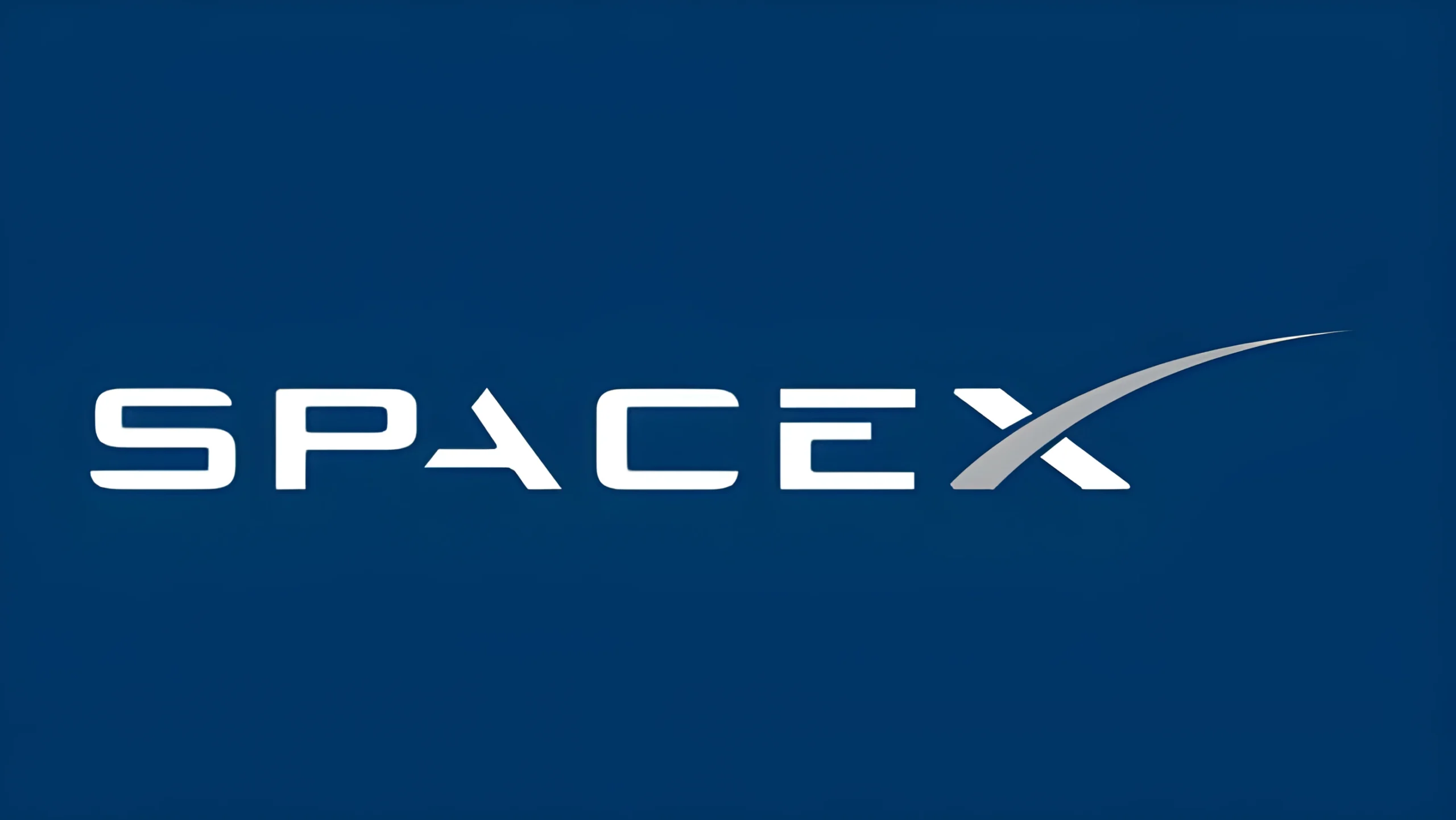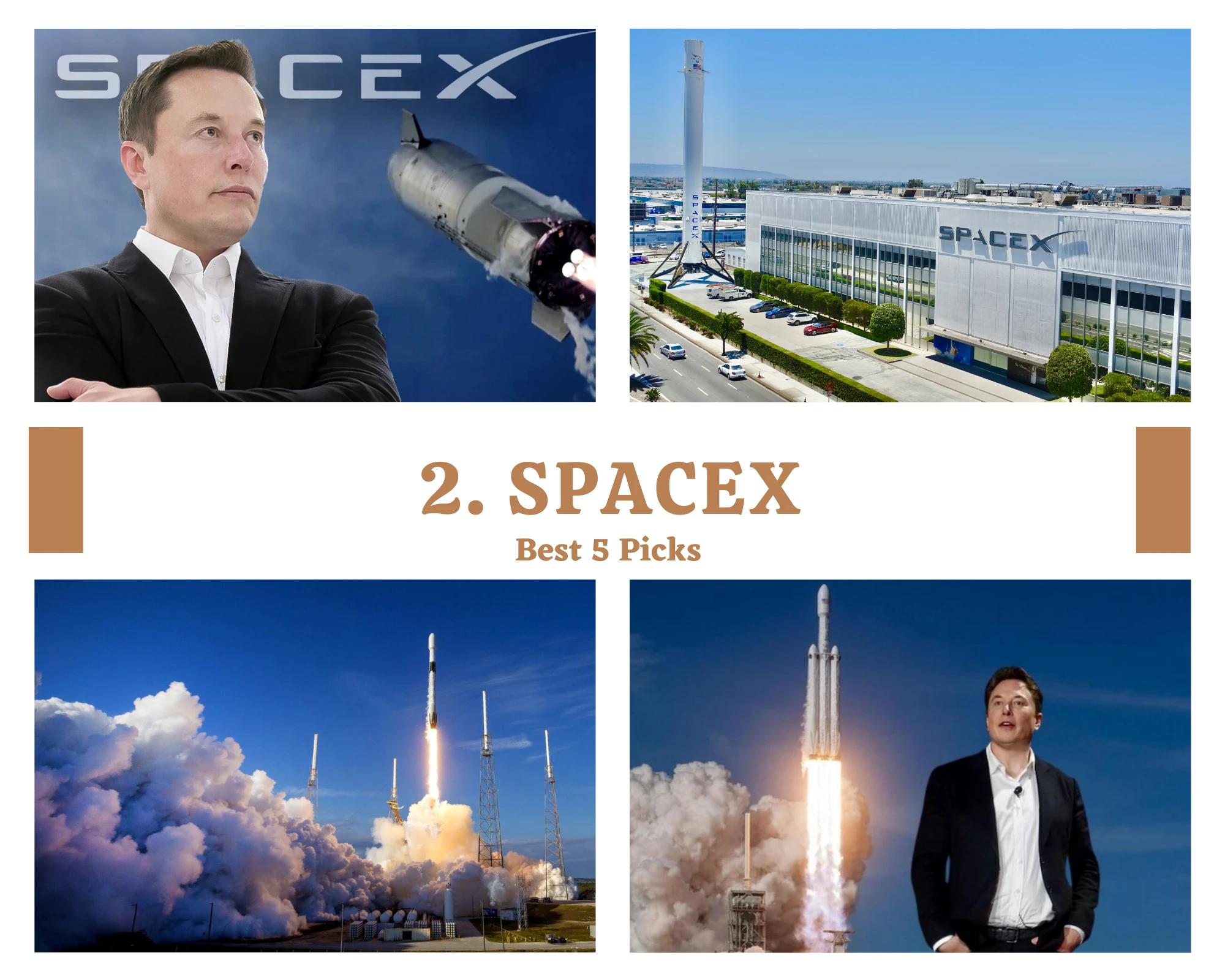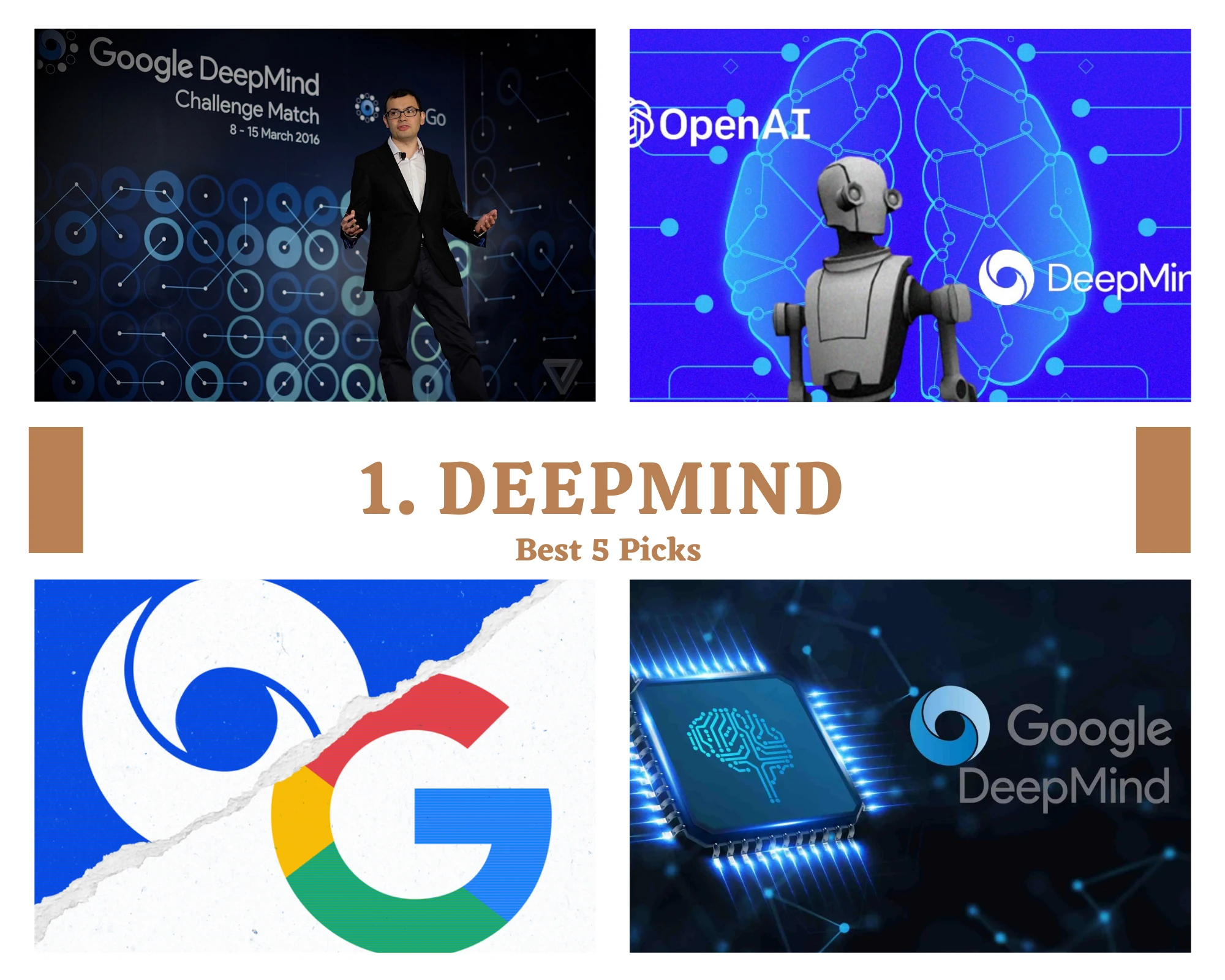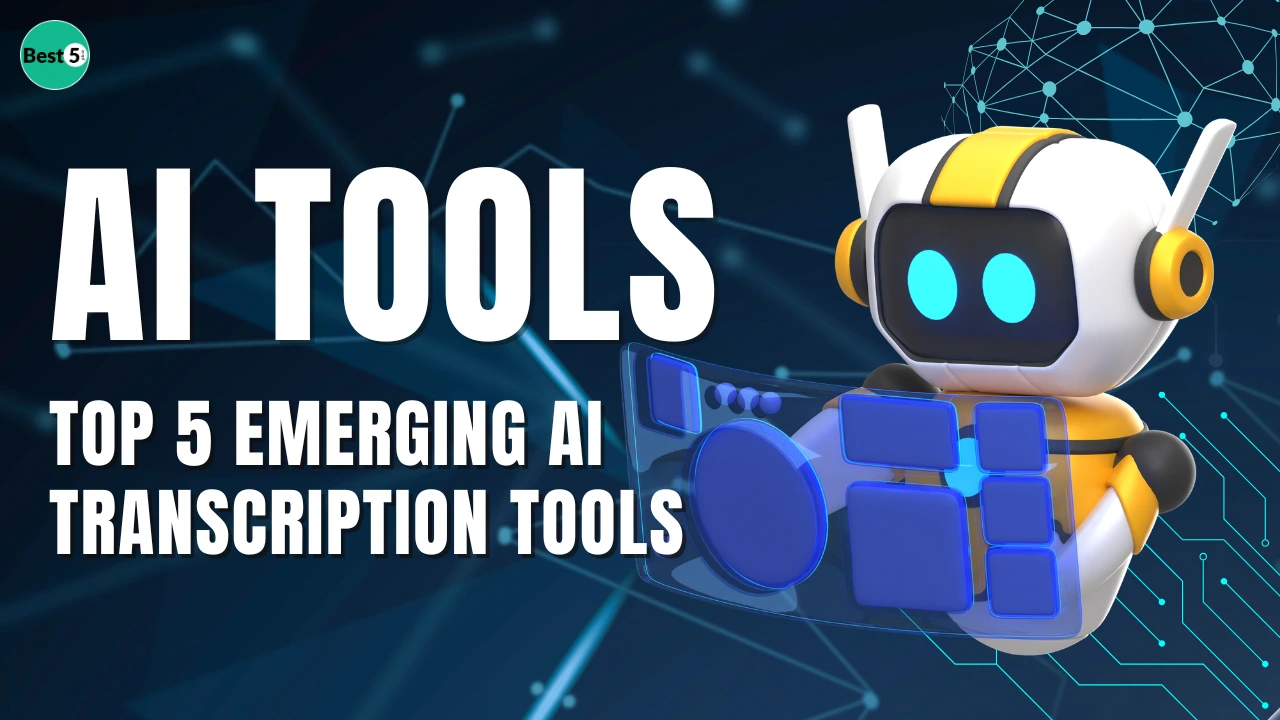Discover the latest groundbreaking startups shaking up their respective industries in our article “5 Most Innovative Startups Revolutionizing Their Industries.”
From cutting-edge technology to disruptive business models, these startups are pushing boundaries and reshaping the landscape of their fields.
Dive into the world of innovation as we explore how these dynamic companies are revolutionizing their industries with bold ideas and groundbreaking solutions.
In this curated list, we’ll delve into the stories behind these innovative startups, uncovering the visionaries driving change and the innovative approaches they’re taking to solve industry challenges.
Whether it’s transforming healthcare, redefining transportation, or revolutionizing finance, these startups are at the forefront of innovation, inspiring others to think differently and push the boundaries of what’s possible.
Join us as we celebrate the ingenuity and creativity of these trailblazing startups that are shaping the future of their industries.
I. Introduction
Unleash the future with these 5 groundbreaking startups reshaping industries! From tech to healthcare, witness innovation at its finest. Discover now!
A. Overview of the startup ecosystem and its impact on industries
In recent years, the startup ecosystem has witnessed significant growth and has become a powerful force driving innovation across various industries.
Startups, characterized by their entrepreneurial spirit, agility, and disruptive mindset, are reshaping traditional business models and challenging established players.
These young companies leverage technological advancements, creative ideas, and fresh approaches to address existing market gaps and solve complex problems.
The startup ecosystem encompasses a diverse range of industries, including technology, healthcare, finance, transportation, and more.
These startups often emerge with the goal of introducing innovative products, services, or business models that transform industries and improve the lives of consumers.
With their nimble operations, startups have the ability to adapt quickly to changing market dynamics and experiment with new ideas, giving them a competitive edge over larger, more established organizations.
B. Importance of innovation in startups
Innovation lies at the heart of startups and is crucial to their success. Startups thrive on developing novel solutions that challenge the status quo and offer unique value propositions.
The ability to think outside the box and bring disruptive ideas to market allows startups to gain a competitive advantage and capture market share.
Startups often introduce breakthrough technologies, business models, or products that revolutionize industries. These innovations have the potential to reshape consumer behavior, industry practices, and market dynamics.
By introducing new approaches and addressing unmet needs, startups create opportunities for growth, enhance efficiency, and drive positive change.
Furthermore, innovation in startups fosters economic growth and job creation. Startups are often at the forefront of technological advancements, driving research and development activities. Their ability to attract talent, foster entrepreneurship, and create job opportunities contributes to the overall economic landscape.
Investors, recognizing the potential for high returns, are drawn to startups that demonstrate innovative ideas and disruptive potential. These investments fuel the growth and development of startups, allowing them to scale their operations, expand their reach, and accelerate innovation.
Startups play a vital role in the economy and industries by bringing fresh perspectives, innovative ideas, and disruptive solutions. Their ability to drive change and challenge established norms highlights the significance of innovation in the startup ecosystem.
5. Airbnb

A. Introduction to the hospitality industry and traditional hotel accommodations
The hospitality industry has long been dominated by traditional hotel accommodations. Travelers typically had limited options when it came to finding a place to stay, relying primarily on hotels, motels, and resorts.
These establishments offered standardized rooms and services, often at high prices. However, the emergence of Airbnb has completely disrupted this industry.
B. Explanation of Airbnb’s game-changing platform connecting travelers with unique lodging options
Airbnb, founded in 2008, introduced a game-changing platform that connects travelers with unique lodging options worldwide. The concept behind Airbnb is simple yet revolutionary. It allows individuals to rent out their homes, apartments, or spare rooms to travelers, providing a more personalized and immersive experience.
Through Airbnb’s platform, hosts can list their properties with details such as location, amenities, and pricing. Travelers, on the other hand, can search for accommodations based on their preferences, budget, and desired location.
This innovative approach to hospitality has created a vibrant marketplace where people can discover and book a wide range of lodging options beyond traditional hotels.
The key features that set Airbnb apart from traditional accommodations are
1. Variety and uniqueness: Airbnb offers a vast array of lodging options, ranging from cozy apartments in bustling cities to secluded villas in remote locations. Travelers can choose from a wide range of accommodations that suit their preferences, whether it’s a trendy loft, a charming cottage, or a luxurious beachfront villa.
2. Authentic experiences: Staying in an Airbnb property often provides travelers with a more authentic experience compared to hotels. By staying in someone’s home, travelers can immerse themselves in the local culture, interact with hosts who are often locals themselves, and get insider tips on the best places to eat, visit, and explore.
3. Cost-effectiveness: Airbnb accommodations can offer significant cost savings compared to traditional hotels, particularly for longer stays or when traveling in groups. Additionally, hosts have the flexibility to set their own prices, allowing travelers to find options that fit their budget.
4. Enhanced flexibility: Airbnb provides flexibility in terms of check-in and check-out times, allowing travelers to tailor their accommodations to their specific needs. This flexibility can be particularly beneficial for those with late-night or early-morning arrivals or departures.
The success of Airbnb has been remarkable. It has expanded to over 220 countries and regions, with millions of listings available worldwide.
The platform has not only provided an alternative form of accommodation but has also created economic opportunities for individuals to earn income by renting out their properties.
Moreover, Airbnb has spurred the growth of the sharing economy, influencing other industries such as transportation (Uber, Lyft) and dining (UberEATS, DoorDash).
The concept of peer-to-peer sharing and the idea that individuals can monetize their underutilized assets has become increasingly popular, leading to a broader shift in consumer behavior and business models.
Despite its success, Airbnb has faced challenges, including regulatory concerns in some cities and issues related to property management and guest safety.
However, the company has taken steps to address these concerns, implementing measures such as enhanced host verification processes, safety guidelines, and collaboration with local authorities.
Looking ahead, Airbnb continues to innovate and expand its offerings. The company has introduced new features like Airbnb Experiences, which allow hosts to offer unique activities and tours to travelers, further enhancing the overall travel experience.
Airbnb has revolutionized the hospitality industry by providing a platform that connects travelers with unique lodging options.
Its impact extends beyond the accommodation sector, inspiring a broader sharing economy and changing the way people travel. With its commitment to innovation and enhancing the travel experience, Airbnb is set to shape the future of the hospitality industry
C. User feedback and market response to Airbnb’s offering, including the growth of the sharing economy

Since its founding in 2008, Airbnb has experienced remarkable growth and garnered significant user feedback and market response. The platform’s unique offering of connecting travelers with unique lodging options provided by individual hosts has revolutionized the hospitality industry.
Users have embraced Airbnb’s model, appreciating the ability to find affordable accommodations, experience local culture, and connect with hosts directly.
One of the key factors contributing to Airbnb’s success is its user review system. Guests can leave reviews about their stays, providing valuable feedback to hosts and future guests.
This transparency has created a sense of accountability and trust within the community, as both hosts and guests strive to maintain positive ratings.
The feedback system has been instrumental in fostering a culture of quality and ensuring a positive experience for users. Moreover, the market response to Airbnb’s offering has been overwhelmingly positive.
The growth of the sharing economy, fueled in part by the success of Airbnb, has disrupted the traditional hotel industry. Travelers now have a broader range of accommodations to choose from, including unique properties such as apartments, houses, treehouses, and even castles.
This increased diversity in lodging options has catered to various traveler preferences, from budget-conscious individuals to those seeking luxurious and unconventional stays.
Airbnb’s impact has not been limited to leisure travel. The platform has also gained popularity among business travelers who appreciate the flexibility and cost-effectiveness of staying in Airbnb accommodations, especially for extended stays or group trips.
This expansion into the corporate travel sector has further solidified Airbnb’s position as a disruptor in the overall travel industry.
D. Potential future developments and expansion plans of Airbnb, such as entering new travel segments
As Airbnb continues to evolve, the company has set its sights on further expansion and diversification. While initially focused on accommodations, Airbnb has been exploring additional travel segments to enhance its offerings and capture more market share.
One area of potential growth for Airbnb is experiences. In 2016, Airbnb introduced Airbnb Experiences, allowing hosts to offer unique activities and tours to guests.
This move has diversified Airbnb’s offerings beyond accommodations, providing travelers with the opportunity to explore local culture, learn new skills, and engage in personalized experiences. Expanding and refining the experiences platform could be a key avenue for future development.
Furthermore, Airbnb has been exploring opportunities in the luxury travel sector. In 2018, the company launched Airbnb Luxe, a collection of high-end, luxury accommodations for discerning travelers.
This strategic move aimed to attract affluent guests who seek exceptional and exclusive travel experiences. By curating a selection of premium properties and offering concierge services, Airbnb has positioned itself as a competitor in the luxury hospitality market.
Airbnb has also shown interest in the long-term rental market, targeting individuals seeking stays of one month or more. By accommodating longer-term guests, Airbnb can cater to digital nomads, business travelers, and those in need of temporary housing.
This expansion into the long-term rental market could provide a stable revenue stream and open up new opportunities for hosts.
Additionally, Airbnb has been exploring partnerships with other travel-related services and companies. Collaborations with airlines, car rental services, and local tourism organizations could enhance the overall travel experience for Airbnb users and further establish the platform as a comprehensive travel solution.
Airbnb’s user feedback and market response have been overwhelmingly positive, leading to its significant growth and success. With the potential for further development in areas such as experiences, luxury travel, long-term rentals, and partnerships, Airbnb continues to innovate and shape the future of the travel industry.
By adapting to changing traveler preferences and expanding its offerings, Airbnb remains at the forefront of the sharing economy and is poised for continued growth and disruption in the years to come.
4. Tesla

A. Background of the automotive industry and its reliance on fossil fuels
The automotive industry has long relied on fossil fuels as the primary source of energy for vehicles. This dependence has led to numerous challenges, including environmental concerns such as air pollution and carbon emissions.
As the world recognizes the urgent need to transition to sustainable energy sources, the automotive industry has faced increasing pressure to innovate and find alternatives to traditional combustion engines.
B. Description of Tesla’s disruptive business model and electric vehicle technology
Tesla, founded by entrepreneur Elon Musk in 2003, has emerged as a pioneer in the electric vehicle (EV) industry. The company’s disruptive business model revolves around the development and production of all-electric vehicles, as well as renewable energy solutions.
1. Electric Vehicle Technology:
Tesla’s electric vehicles utilize advanced battery technology, offering impressive range and performance. Their flagship models, such as the Model S, Model 3, and Model X, have garnered widespread acclaim for their cutting-edge design, long-range capabilities, and exceptional acceleration.
Tesla’s focus on battery efficiency and charging infrastructure has significantly contributed to overcoming the limitations of early EVs.
2. Supercharger Network:
One of Tesla’s most significant innovations is the creation of the Supercharger network. This extensive network of high-speed charging stations enables Tesla owners to recharge their vehicles quickly, reducing concerns about range anxiety and facilitating long-distance travel.
The Supercharger network has played a crucial role in improving the overall convenience and practicality of electric vehicles.
3. Autopilot and Self-Driving Technology:
Tesla has also made significant strides in autonomous driving technology. Their vehicles feature advanced driver-assistance systems (ADAS), including Autopilot, which enables functions such as lane-keeping, adaptive cruise control, and self-parking.
Tesla’s ongoing research and development in autonomous driving aim to achieve full self-driving capabilities, which could revolutionize transportation systems in the future.
4. Sustainable Energy Solutions:
In addition to electric vehicles, Tesla has expanded its focus to renewable energy solutions. The company manufactures solar panels and energy storage systems, such as the Powerwall and Powerpack, that allow for efficient energy storage and usage in residential and commercial settings.
Tesla’s integration of electric vehicles and sustainable energy solutions promotes a holistic approach to reducing carbon emissions and transitioning to a sustainable energy future.
Tesla’s disruptive business model and commitment to sustainable transportation have not only revolutionized the automotive industry but also inspired other manufacturers to invest in electric vehicle technology.
The company’s success has driven increased competition and accelerated the global shift towards sustainable transportation.
Tesla’s accomplishments have garnered widespread recognition and market success. Its vehicles have gained a significant market share in several countries, and Tesla’s market capitalization has surpassed that of long-established automakers.
The company’s innovative approach and relentless pursuit of excellence have positioned it as a key player in shaping the future of transportation.
Despite facing challenges such as manufacturing scalability and establishing a global charging infrastructure, Tesla continues to push the boundaries of innovation.
Its commitment to electric vehicles, renewable energy, and autonomous driving technology has the potential to reshape the automotive industry and contribute to a greener, more sustainable future.
C. Implications of Tesla’s Innovation on the Industry Ecosystem

1. Environmental Impact: Tesla’s electric cars have played a crucial role in reducing greenhouse gas emissions and combating climate change. By promoting sustainable transportation, Tesla has contributed to a cleaner and greener environment, minimizing dependence on fossil fuels and traditional internal combustion engines.
2. Market Disruption: Tesla’s success has disrupted the automotive market, challenging established manufacturers and pushing them to invest in electric vehicle technology. The company’s commitment to innovation and high-quality EVs has inspired other automakers to accelerate their efforts in developing electric cars, creating a competitive environment focused on sustainable mobility solutions.
3. Technology Advancements: Tesla’s focus on technology and software integration has led to significant advancements in areas such as battery technology, autonomous driving, and energy storage. The company’s advancements have not only improved the driving experience for consumers but have also influenced the development of self-driving capabilities and the integration of renewable energy sources into the power grid.
D. Challenges Faced by Tesla
Scaling Production: As Tesla’s popularity and demand for its vehicles have grown, one of the major challenges has been scaling up production to meet the increasing market needs. Scaling production efficiently while maintaining quality standards and managing supply chain logistics has been a constant focus for the company.
Establishing Charging Infrastructure: Tesla’s success relies on a robust network of charging stations to support long-distance travel and alleviate “range anxiety” among consumers. Establishing a widespread charging infrastructure has been a challenge, requiring collaboration with governments, businesses, and other stakeholders to build a comprehensive and accessible network of charging stations.
Regulatory and Policy Environment: The automotive industry is subject to various regulations and policies that can impact the adoption and growth of electric vehicles. Tesla has faced challenges related to regulatory barriers, such as restrictions on direct sales in certain jurisdictions, which have required the company to navigate complex legal landscapes and advocate for policy changes to support EV adoption.
Despite these challenges, Tesla has made significant progress in addressing them. The company has continually invested in expanding production capacity, including building Gigafactories worldwide.
Tesla has also expanded its Supercharger network, making long-distance travel more convenient for electric vehicle owners.
Moreover, the company’s ongoing efforts to educate consumers and policymakers about the benefits of electric vehicles have helped shape a more favorable environment for the industry.
Tesla’s innovation in electric vehicle technology has had profound implications for the automotive industry. It has led to increased adoption of electric cars, influenced technological advancements, and pushed traditional automakers to embrace electric mobility.
While challenges remain, Tesla’s commitment to sustainable transportation and its relentless pursuit of innovation continue to drive the transformation of the automotive industry towards a cleaner and more sustainable future.
3. Impossible Foods

A. Introduction to the food industry and its environmental impact
The food industry plays a vital role in our daily lives, providing sustenance and nourishment. However, it also has a significant environmental impact. Traditional animal agriculture, for example, contributes to deforestation, greenhouse gas emissions, water pollution, and biodiversity loss.
As the global population continues to grow, the demand for food increases, putting further pressure on the environment. Recognizing these challenges, innovative startups like Impossible Foods have emerged to revolutionize the food industry.
B. Explanation of Impossible Foods’ groundbreaking innovation in plant-based meat alternatives
Impossible Foods is a pioneering startup that has made substantial advancements in the development of plant-based meat alternatives. By leveraging cutting-edge technology, they have created plant-based products that closely mimic the taste, texture, and experience of conventional meat.
Their flagship product, the Impossible Burger, has gained widespread recognition for its ability to provide a satisfying burger experience while being entirely free of animal products.
The key to Impossible Foods‘ success lies in their use of a molecule called heme. Heme is responsible for the distinctive taste and aroma of meat. Impossible Foods discovered a way to produce heme directly from plants, specifically from soybean roots.
By extracting heme and incorporating it into their products, they have achieved a remarkable meat-like flavor and juiciness that has impressed both vegans and meat-eaters alike.
Moreover, Impossible Foods’ approach to plant-based meat alternatives goes beyond taste. They strive to create products that are more sustainable and environmentally friendly compared to traditional meat production.
The production of plant-based meat substitutes requires significantly less land, water, and energy, resulting in a considerably lower carbon footprint. By providing an appealing alternative to animal-based meat, Impossible Foods aims to reduce the reliance on traditional agriculture and mitigate the environmental impact associated with livestock farming.
In addition to the Impossible Burger, the company has expanded its product portfolio to include other plant-based meat options such as ground meat, sausage, and even plant-based fish alternatives. Their continuous innovation and commitment to sustainability have made them a prominent player in the rapidly growing market for plant-based food products.
Impossible Foods’ groundbreaking innovation has not gone unnoticed. The company has garnered widespread attention and partnerships with prominent restaurants and fast-food chains, allowing their products to reach a broader consumer base. They have also received significant investments, enabling them to scale their production and expand their distribution network.
By offering delicious and sustainable plant-based alternatives to traditional meat products, Impossible Foods is reshaping the food industry. Their innovative approach has the potential to revolutionize the way we consume and think about meat, making a positive impact on both our health and the environment.
C. Benefits and Advantages Offered by Impossible Foods’ Products

Impossible Foods‘ plant-based meat products offer several compelling benefits. Firstly, they provide a sustainable alternative to conventional meat production, which is notorious for its high resource consumption and environmental impact.
Traditional animal agriculture requires vast amounts of land, water, and feed to raise livestock, contributing to deforestation, water pollution, and greenhouse gas emissions. In contrast, Impossible Foods’ products require a fraction of the resources, including 87% less water and 96% less land, while generating 89% fewer greenhouse gas emissions.
This reduction in resource consumption offers a more environmentally friendly and sustainable way to meet global food demands.
Secondly, Impossible Foods‘ products address health concerns associated with traditional meat consumption. They are free from cholesterol and contain no hormones or antibiotics, which are often present in animal-based products.
Moreover, these plant-based alternatives are lower in saturated fat and calories, making them a healthier option for individuals looking to reduce their intake of animal fats. The products also provide essential nutrients such as iron and protein, sourced from plants, allowing consumers to meet their nutritional needs without relying solely on animal sources.
Furthermore, Impossible Foods’ products have a wide appeal due to their versatility and delicious taste. Whether it’s a juicy burger, savory meatballs, or sizzling sausage, these plant-based alternatives offer a satisfying culinary experience that closely resembles traditional meat.
This aspect has contributed to their growing popularity among not only vegans and vegetarians but also a broader range of consumers who are embracing flexitarian or reducetarian diets.
By providing a comparable taste experience, Impossible Foods has made it easier for individuals to make sustainable and healthier choices without sacrificing their culinary preferences.
D. Collaboration or Partnerships with Established Food Companies
To expand its market reach and accelerate adoption, Impossible Foods has actively pursued collaborations and partnerships with established food companies. One notable collaboration is its partnership with Burger King, one of the largest fast-food chains globally. In 2019, Burger King launched the “Impossible Whopper,” a plant-based burger featuring Impossible Foods’ patty.
This collaboration significantly increased the accessibility and visibility of Impossible Foods‘ products, allowing consumers to try the plant-based alternative at a widely recognized fast-food chain.
Additionally, Impossible Foods has partnered with other major players in the food industry, including restaurants, hotels, and educational institutions. By collaborating with these established brands, Impossible Foods has gained entry into various segments of the foodservice industry, making their products available to a broader customer base.
These partnerships not only contribute to market expansion but also foster innovation and knowledge exchange within the industry, further driving the growth of plant-based alternatives.
The collaboration and partnerships pursued by Impossible Foods demonstrate the company’s commitment to making its products accessible and appealing to a wide range of consumers.
By leveraging the existing reach and infrastructure of established food companies, Impossible Foods has successfully expanded its market presence and brought about a positive impact on the food industry.
Impossible Foods is revolutionizing the food industry with its plant-based meat alternatives. By offering products that closely mimic the taste and texture of traditional meats while significantly reducing resource consumption, Impossible Foods provides a sustainable and healthier option for consumers.
Through collaborations and partnerships with established food companies, the company has expanded its market reach and accelerated the adoption of its innovative products.
Impossible Foods’ success not only benefits consumers but also contributes to the transformation of the food industry towards a more sustainable and environmentally friendly future.
2. SpaceX

A. Overview of the aerospace industry and its challenges
SpaceX The aerospace industry is a highly complex and technologically advanced field that encompasses various sectors, including space exploration, satellite communications, and commercial aviation.
It faces numerous challenges, such as high costs of space launches, limited reusability of rockets, and lack of accessibility to space for research and commercial purposes. These challenges have traditionally hindered innovation and exploration beyond Earth’s atmosphere.
B. Description of SpaceX’s unique approach to space exploration and rocket technology
SpaceX, founded in 2002 by Elon Musk, has emerged as a revolutionary force in the aerospace industry, redefining the possibilities of space exploration and rocket technology. The company’s approach can be summarized in three key areas:
1. Reusable Rockets:
SpaceX has made significant strides in developing reusable rocket technology, aiming to drastically reduce the cost of space launches. Traditionally, rockets were considered expendable, with most components discarded after each launch.
SpaceX’s Falcon 9 and Falcon Heavy rockets feature a unique design that allows them to land vertically after delivering their payloads into space. By successfully landing and refurbishing these rockets, SpaceX has achieved unprecedented cost savings and increased launch frequency.
2. Starship and Interplanetary Travel:
SpaceX’s ambitious project, the Starship, is designed to revolutionize space travel and enable human colonization of other planets. It is a fully reusable spacecraft capable of carrying both crew and cargo.
With its advanced propulsion systems and larger payload capacity, the Starship aims to reduce the cost of reaching orbit and provide a platform for future missions to the Moon, Mars, and beyond. SpaceX envisions using the Starship for interplanetary travel, asteroid mining, and even establishing a self-sustaining colony on Mars.
3. Satellite Constellations:
SpaceX has also ventured into satellite communications with its Starlink project. By deploying thousands of small satellites in low Earth orbit, SpaceX aims to create a global broadband internet network, providing high-speed connectivity to even the most remote regions of the world. This ambitious project has the potential to bridge the digital divide and revolutionize global communication.
The innovative approaches taken by SpaceX have garnered significant attention and admiration within the aerospace industry and beyond. The company has achieved several milestones, including launching the first privately funded spacecraft (Dragon) to dock with the International Space Station (ISS), pioneering the vertical landing of rockets, and disrupting the traditional space launch market with competitive pricing.
SpaceX’s groundbreaking advancements have not only revolutionized the aerospace industry but have also sparked renewed interest and investment in space exploration. By challenging conventional norms and pushing technological boundaries, SpaceX continues to pave the way for a more accessible and sustainable future in space.
C. Success stories and market adoption of SpaceX’s reusable rocket systems

SpaceX’s most notable success story lies in the development and deployment of the Falcon 9 rocket and the Falcon Heavy, both of which feature a groundbreaking reusable design.
Traditional rocket systems were considered disposable, resulting in exorbitant costs for each launch. However, SpaceX’s reusable rockets have proven to be a game-changer, significantly reducing the cost of space travel.
In 2015, SpaceX achieved a major milestone when the Falcon 9 rocket successfully landed vertically after delivering supplies to the International Space Station (ISS).
This was the first time in history that a rocket’s first stage had been recovered intact. Subsequently, SpaceX continued to refine its rocket landing techniques, achieving numerous successful landings on both land and floating platforms at sea.
The market has embraced SpaceX’s reusable rocket systems, resulting in a significant increase in demand for its launch services. SpaceX has secured contracts with NASA, commercial satellite operators, and even national defense agencies.
The company has successfully launched and delivered payloads to various destinations, including the ISS, and has established a reputation for reliability and cost-effectiveness.
D. Future prospects and potential growth of SpaceX, including plans for Mars colonization
SpaceX has bold plans for the future, aiming to revolutionize space travel by eventually colonizing Mars. Musk’s ambitious vision involves developing a fully reusable interplanetary transport system called Starship, which will serve as the primary vehicle for future missions to Mars and beyond.
To achieve this, SpaceX has been actively testing prototypes of the Starship spacecraft, conducting several high-altitude test flights to refine its design and capabilities. Although faced with challenges and setbacks during these tests, SpaceX‘s commitment to iterative development and rapid prototyping has allowed them to make significant progress.
In addition to Mars colonization, SpaceX has also set its sights on other ambitious endeavors. This includes providing satellite internet connectivity through its Starlink constellation, which aims to provide high-speed, low-latency broadband access to underserved areas worldwide. With thousands of satellites already deployed and operational, SpaceX envisions a global network that can connect the entire planet.
Moreover, SpaceX has secured contracts to carry astronauts to the Moon as part of NASA’s Artemis program, demonstrating the company’s involvement in lunar exploration and potentially paving the way for future human missions beyond Earth’s orbit.
With its successful track record, ongoing technological advancements, and ambitious plans, SpaceX is poised for significant growth and continued disruption of the aerospace industry.
By pushing the boundaries of what is possible, SpaceX is inspiring a new era of space exploration and shaping the future of humanity’s presence in space.
1. DeepMind

A. Brief introduction to DeepMind and its industry (Artificial Intelligence)
DeepMind is a British-based startup founded in 2010 that specializes in the field of artificial intelligence (AI). It was acquired by Google in 2014 and operates as a subsidiary of Alphabet Inc.
DeepMind’s primary focus is on developing advanced AI technologies and machine learning algorithms to tackle complex problems and advance the frontiers of human knowledge.
B. Explanation of DeepMind’s innovative solutions in machine learning and AI research
DeepMind has gained global recognition for its groundbreaking work in machine learning and AI research. The startup has made significant contributions to various domains and has demonstrated its capabilities through the development of innovative solutions. Here are some notable examples:
1. AlphaGo: DeepMind gained international attention when its AI program, AlphaGo, defeated the world champion Go player, Lee Sedol, in 2016. This victory was considered a major milestone in AI research, as Go is an ancient Chinese board game known for its complexity. AlphaGo’s success showcased the ability of machine learning algorithms to master strategic games and solve complex problems.
2. DeepMind’s healthcare initiatives: DeepMind has been actively exploring the application of AI in healthcare. One notable project is the collaboration with Moorfields Eye Hospital in London, where DeepMind’s AI algorithms were used to analyze retinal scans and detect signs of eye diseases with remarkable accuracy. This development has the potential to revolutionize early diagnosis and treatment of ocular conditions.
3. Protein folding: In 2020, DeepMind’s AI program, AlphaFold, made significant advancements in the field of protein folding prediction. Proteins are essential building blocks of life, and understanding their structure is crucial for developing treatments for diseases. AlphaFold’s innovative approach to predicting protein folding has the potential to accelerate drug discovery and revolutionize the field of biochemistry.
4. Reinforcement learning: DeepMind has been a pioneer in the field of reinforcement learning, a subfield of AI that focuses on training algorithms to make decisions based on feedback from their environment. DeepMind’s research has led to breakthroughs in autonomous systems, robotics, and game playing, showcasing the potential of reinforcement learning in various real-world applications.
DeepMind’s commitment to pushing the boundaries of AI research has resulted in several transformative innovations. By leveraging cutting-edge technologies and collaborating with academic institutions and industry partners, DeepMind continues to drive advancements in the field of artificial intelligence and shape the future of technology.
C. Impact and Disruption in Healthcare

DeepMind’s foray into the healthcare sector has been marked by its collaborations with leading medical institutions and its focus on leveraging AI to improve patient care and outcomes. One notable project is the collaboration between DeepMind and Moorfields Eye Hospital in London.
DeepMind developed an AI system that analyzes retinal scans to detect eye conditions, including age-related macular degeneration and diabetic retinopathy. The system demonstrated remarkable accuracy and efficiency, assisting doctors in making more precise diagnoses and delivering timely interventions.
DeepMind’s impact in healthcare extends beyond diagnostics. The company has also explored AI applications in predicting patient deterioration, optimizing treatment plans, and reducing waiting times through operational improvements. These initiatives hold the promise of revolutionizing healthcare delivery, improving patient experiences, and saving lives.
D. Key Achievements and Recognition
DeepMind’s achievements have garnered significant recognition and acclaim. One of the most notable milestones was AlphaGo, an AI program developed by DeepMind, which achieved a historic victory over the world champion Go player, Lee Sedol, in 2016. This landmark event highlighted the prowess of DeepMind’s AI algorithms and their ability to tackle complex strategic games.
Apart from its gaming triumph, DeepMind’s contributions have earned it prestigious accolades and awards. In 2018, the company received the Royal Society’s Copley Medal, one of the world’s oldest scientific prizes, in recognition of its exceptional contributions to scientific research in AI.
DeepMind’s research papers are regularly published in renowned scientific journals, and its researchers are frequently invited to present their work at major conferences, further solidifying the company’s reputation as a leader in the field.
Furthermore, DeepMind’s impact in healthcare has garnered attention from the medical community and regulatory bodies alike.
However, it has also sparked discussions around data privacy and the ethical implications of using AI in healthcare, prompting DeepMind to establish partnerships with institutions, adhere to strict privacy guidelines, and foster collaborations with stakeholders to ensure responsible and transparent deployment of their technologies.
DeepMind’s disruptive innovations and accomplishments position it as a trailblazer in the AI industry, pushing the boundaries of what is possible and paving the way for future breakthroughs.
With a commitment to ethical practices and collaborations, DeepMind continues to shape the landscape of AI, inspiring other startups and established players to explore the transformative potential of this technology in various sectors.
II. Conclusion
The startup ecosystem has become a catalyst for transformative change across various industries. Innovation lies at the core of these startups, driving disruption and challenging traditional practices.
In this article, we will explore five exceptional startups that are revolutionizing their respective industries through their groundbreaking solutions and forward-thinking approaches.
In conclusion, the five innovative startups discussed DeepMind, SpaceX, Impossible Foods, Tesla, and Airbnb have each made remarkable contributions to their respective industries. Their pioneering solutions and visionary approaches have been instrumental in driving industry-wide transformation.
These startups have not only challenged the status quo but have also demonstrated the power of innovation to address pressing global issues.
Looking ahead, the future of innovation and startups in various industries appears promising. With advancements in technology and evolving consumer demands, startups will continue to play a vital role in shaping industries and disrupting conventional practices.
III. Quick Recap of The 5 Most Innovative Startups Revolutionizing Their Industries
- DeepMind
- SpaceX
- Impossible Foods
- Tesla
- Airbnb
The examples set by these five startups serve as a testament to the potential for innovation to create a positive and sustainable impact.
As we embrace the potential of startups, it is crucial to foster an environment that nurtures and supports innovation. Collaboration between startups and established industry players, along with favorable regulatory frameworks, can further fuel the transformative power of startups.
By harnessing the creativity and agility of startups, we can pave the way for a future that is driven by innovation across multiple sectors.
IV. Frequently Asked Questions (FAQ)
What makes these startups innovative?
These startups are considered innovative because they are disrupting traditional industries with groundbreaking technologies and business models.
How did DeepMind revolutionize its industry?
DeepMind revolutionized the field of artificial intelligence with its advancements in deep learning algorithms, particularly in areas like reinforcement learning and neural networks.
What innovations has SpaceX brought to the space industry?
SpaceX has introduced reusable rocket technology, significantly reducing the cost of space travel, and has ambitious plans for interplanetary colonization with projects like Starship.
What sets Impossible Foods apart in the food industry?
Impossible Foods is known for its plant-based meat alternatives that closely mimic the taste and texture of traditional meat products, offering a sustainable and ethical alternative to animal agriculture.
How has Tesla transformed the automotive industry?
Tesla has popularized electric vehicles, pushing the boundaries of range and performance while also pioneering autonomous driving technology with its advanced driver-assistance systems.
What makes Airbnb innovative in the hospitality sector?
Airbnb disrupted the hospitality industry by creating a platform for individuals to rent out their homes or properties to travelers, offering unique and personalized accommodations.
How has DeepMind impacted healthcare?
DeepMind has applied its AI expertise to healthcare, developing algorithms that can analyze medical data to assist in diagnosis, treatment planning, and medical research.
What are some future projects SpaceX is working on?
SpaceX is working on projects like the Starlink satellite internet constellation, the Starship spacecraft for interplanetary travel, and missions to Mars with the goal of human colonization.
What challenges has Impossible Foods faced in promoting plant-based alternatives?
Impossible Foods has faced challenges such as scaling up production to meet demand, addressing regulatory hurdles, and overcoming consumer skepticism about plant-based meat substitutes.
How has Airbnb dealt with issues related to regulation and community impact?
Airbnb has faced regulatory challenges in various cities regarding taxes, zoning laws, and concerns about the impact on housing affordability and neighborhood character. The company has worked to address these issues through partnerships with local governments and implementing measures to promote responsible hosting practices.










